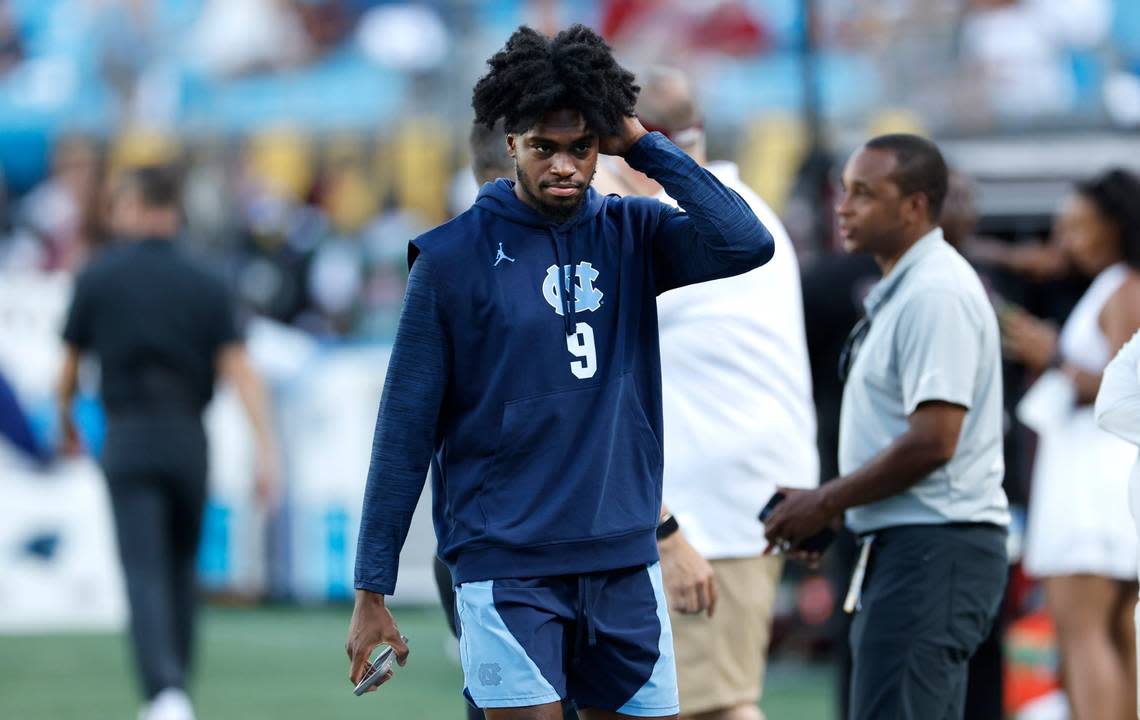NCAA’s controversial transfer rule on hold after judge deals NCAA another legal blow

A federal judge dealt another legal blow to the NCAA on Wednesday, and in a blistering order described an NCAA rule limiting athletes’ ability to transfer as “draconian, heavy-handed (and) ‘my way or the highway.’” The description was part of a temporary restraining order Judge John Preston Bailey issued, banning the NCAA for two weeks from enforcing the controversial rule.
Bailey’s ruling, issued in the U.S. District Court for the Northern District of West Virginia, granted immediate eligibility to athletes who have been sitting out after transferring multiple times. An NCAA rule has required those athletes to sit out an academic year before becoming eligible, or to seek a special-circumstances waiver to compete immediately.
Less than two hours after Bailey’s ruling, the NCAA announced in a statement that “as a result of today’s decision impacting Division I student-athletes, the Association will not enforce the year in residency requirement for multiple-time transfers and will begin notifying member schools.” An NCAA spokesperson later clarified that the Association’s decision wasn’t necessarily permanent.
“We are complying with the decision today,” Michelle Hosick, the spokesperson, wrote in an email. “The membership would have to make a permanent change to Division I rules.”
NCAA rules allow athletes transferring for the first time to compete immediately. But its rule concerning multi-time transfers has become especially controversial in recent months, with several high-profile cases gaining national attention.
One of those cases was at North Carolina, where Tez Walker, a wide receiver on the Tar Heels football team, was for months denied his eligibility after transferring to UNC from Kent State, and to Kent State from N.C. Central. Walker sought a waiver to compete immediately, claiming in part that sitting out a year would endanger his mental health.
In early September, an NCAA committee charged with reviewing transfer waiver requests issued Walker one final denial. His quest to play this season appeared over, until a team of five Triangle-area attorneys fought on his behalf. Josh Stein, the North Carolina attorney general, also became involved in Walker’s case and advocated for his eligibility.
After a bitter back-and-forth between UNC and the NCAA, one that played out in scathing public statements, the NCAA reversed course in early October granted Walker his immediate eligibility, citing “new information” that Walker’s legal team had offered. After missing the first month of the season, Walker played in UNC’s final eight games.
Stein, though, was not done. He, along with his counterparts from six other states, filed a lawsuit earlier this month against the NCAA, alleging that its rule concerning multi-time transfers violated federal antitrust law in that it precludes college athletes from competing in an open market for their services. Bailey, the federal judge in West Virginia, agreed.
In his order, Bailey wrote:
“Within the relevant markets, the Transfer Eligibility Rule harms student-athletes by discouraging them from freely seeking the most beneficial institution for their well-being, limiting their options after the decision to transfer is made, and denying them the benefits of NCAA competition for an entire academic year.
“Moreover, the Transfer Eligibility Rule harms consumers by decreasing the competitiveness of teams whose transfer players are ineligible under the Rule and by stifling increased parity in college athletics. These negative and uncompetitive effects of the Transfer Eligibility Rule are apparent to this Court in the “twinkling of an eye.”
“Simply put, a rule of reason analysis of the Transfer Eligibility Rule reveals that it is the exact kind of unreasonable restraint of trade within labor markets that the relevant antitrust laws prohibit. Accordingly, Plaintiff States have a strong likelihood of success on the merits of their Sherman Act claim.”
The other states that joined North Carolina in filing the lawsuit were Colorado, Illinois, Ohio, New York, Tennessee and West Virginia. The case was filed in federal court in West Virginia, where a University of West Virginia basketball player, RaeQuan Battle, had been sitting out after transferring for a second time.
“I’m in the gym every single day with the team, with the blood, sweat and tears with them,” Battle said in a story published by the Associated Press. “When the ball is thrown up and that tipoff starts, I’m not suited up. That’s what hurts me the most.”
Stein, a Democrat who earlier this week officially filed to run for North Carolina governor in the 2024 election, said in a statement that he was “pleased that the Court has recognized that the NCAA’s transfer rule is unlawful.”
“I will keep fighting to protect student athletes to ensure that they are free to make their own decisions about what’s best for their futures, just like coaches, administrators and other students can,” Stein said.
Indeed, Bailey’s order referenced the freedom college coaches have in switching jobs – a freedom college athletes don’t have, at least not without sitting out for an academic year or seeking waiver after transferring multiple times.
“The NCAA argues that the Transfer Eligibility Rule serves to promote the stability of a team’s roster,” Bailey wrote. “However, nothing in the NCAA Bylaws prevents coaches from leaving or being fired mid-season. And, notably, the NCAA does not prevent first-time transfers in the NCAA.
“There is no meaningful distinction between a first-time transfer and second-time transfer in terms of a team’s stability. Each time, the transfer student-athlete is joining a brand new roster. In sum,this Court finds the NCAA’s stability argument to be without merit given that there are currently no restrictions on first-time transfers or coaches leaving.”


